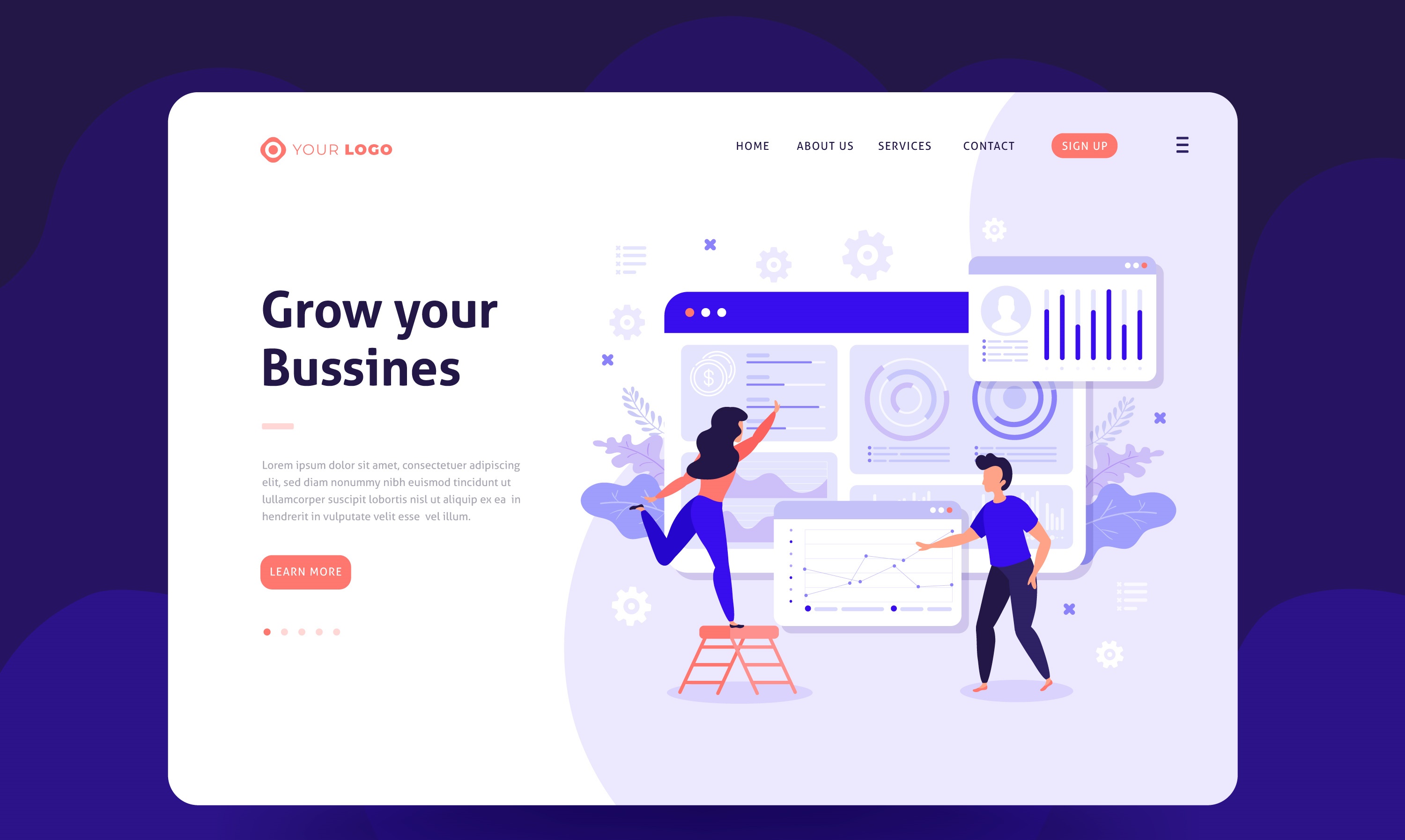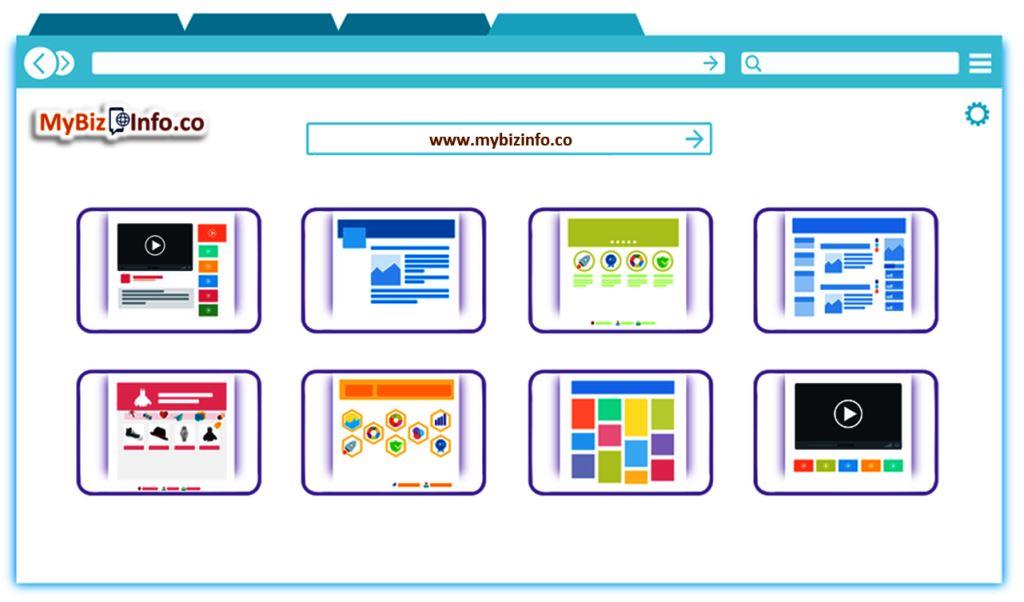
The Importance of Website for Business Growth in 2023
In today's digital age, having a robust online presence has become a top priority for businesses looking to succeed. The importance of a website for business growth cannot be overstated, and it will only become even more critical in 2023. In this article, we will explore why a website is crucial for business success, the essential website features for growth, leveraging e-commerce for expansion, and utilizing website analytics to drive growth.
Why a Website is Crucial for Business Success in 2023
The Growing Role of Digital Presence:
The digital world is continuously evolving at a rapid pace, and online presence has become an essential factor for businesses to consider. A strong digital presence can help businesses reach a more extensive audience and promote brand awareness. With today's competitive marketplace, digital presence has become an effective way to stand out from the competition.
Meeting Customer Expectations:
Customers have high expectations in today's digital age, and having a website helps businesses meet those expectations. Users are increasingly turning to the internet to find information and make purchases. A website provides customers with an accessible and convenient way to interact with a business, increasing customer satisfaction.
Staying Ahead of the Competition:
In today's competitive marketplace, having a website can help businesses stay ahead of the competition. With a well-designed website, businesses can showcase their unique features and differentiate themselves from competitors. In addition, a website can help boost search engine rankings, increasing visibility and attracting more potential customers.
But why stop at just having a website? In order to truly maximize the benefits of a digital presence, businesses should also consider implementing search engine optimization (SEO) strategies. By optimizing their website for search engines, businesses can improve their visibility and attract even more potential customers.
Furthermore, a website can also serve as a platform for businesses to engage with their customers. Through features such as chatbots, contact forms, and social media integration, businesses can provide personalized and efficient customer service. This not only improves customer satisfaction but can also lead to increased customer loyalty and repeat business.
Another advantage of having a website is the ability to track and analyze customer behavior. By utilizing tools such as Google Analytics, businesses can gain valuable insights into their customers' preferences and behaviors. This information can then be used to tailor marketing strategies and improve overall business performance.
Finally, a website can also serve as a powerful marketing tool. By creating engaging and informative content, businesses can attract and retain customers. This content can take many forms, such as blog posts, infographics, and videos. By consistently producing high-quality content, businesses can establish themselves as thought leaders in their industry and build trust with their customers.
In conclusion, having a website is no longer a luxury but a necessity for businesses in today's digital age. By leveraging the power of a digital presence, businesses can reach a wider audience, meet customer expectations, stay ahead of the competition, and ultimately achieve greater success.
Essential Website Features for Business Growth
Having a website is a crucial aspect of any business, but having a website that is optimized for growth is even more important. In this article, we will discuss the essential website features that can help businesses improve their online presence and increase revenue.
Responsive Design and Mobile Optimization:
A responsive website design ensures that the website adapts to different screen sizes, improving usability and accessibility on all devices. With the increasing number of mobile users, mobile optimization is equally important. A mobile-friendly website can improve user experience and reduce bounce rates. It is also important to note that Google prioritizes mobile-friendly websites in search results, making mobile optimization a crucial aspect of website design.
User-Friendly Navigation and Site Structure:
Customers expect to navigate websites easily, and a user-friendly website structure is essential. A clear, organized website structure ensures that users can find the information they need quickly and efficiently. Intuitive navigation and clear calls-to-action can increase conversions and revenue. It is also important to ensure that the website structure is optimized for search engines, making it easier for users to find the website through organic search.
High-Quality Content and SEO:
High-quality content that is SEO optimized is essential for the success of any website. High-quality content appeals to both users and search engines, making the website more discoverable and more attractive. Investing in SEO can provide long-term benefits for website visibility and generating relevant traffic. It is important to ensure that the content is informative, engaging, and relevant to the target audience. Regularly updating the website with fresh content can also improve search engine rankings and keep users engaged.
Effective Call-to-Action and Lead Generation:
A website's primary goal is often to generate leads and conversions. Calls-to-action (CTAs) are essential elements of effective lead generation. A well-designed CTA encourages users to take desired actions, such as filling out lead forms, purchasing products, or subscribing to a newsletter. Effective lead generation helps businesses drive revenue growth. It is important to ensure that the CTAs are strategically placed, visually appealing, and relevant to the website's goals.
Optimized Loading Speed:
Website loading speed is an important factor that affects user experience and search engine rankings. Slow loading speed can increase bounce rates and decrease user engagement. It is important to optimize the website's loading speed by compressing images, minimizing HTTP requests, and using a content delivery network (CDN).
Conclusion:
In conclusion, having a website that is optimized for growth is essential for businesses that want to succeed in the digital age. By incorporating the essential website features discussed above, businesses can improve their online presence, increase user engagement, and drive revenue growth.
Leveraging E-commerce for Business Expansion
E-commerce has revolutionized the way businesses operate, providing them with an opportunity to expand their customer base and increase revenue. In today's digital world, selling products and services online has become a necessity for businesses to thrive.
Benefits of Selling Products and Services Online:
One of the most significant benefits of e-commerce is that it allows businesses to cater to a global audience. With online sales, geographical boundaries become irrelevant, and businesses can reach customers anywhere in the world. Moreover, e-commerce provides customers with the convenience of shopping from the comfort of their homes, which has become increasingly important in the wake of the COVID-19 pandemic.
Choosing the Right E-commerce Platform:
Choosing the right e-commerce platform is essential for businesses to succeed in the online marketplace. There are several e-commerce platforms available, each with its unique features and capabilities. Businesses must select a platform that aligns with their specific needs to make the most of e-commerce.
The ideal e-commerce platform provides a user-friendly interface that is easy to navigate for both customers and administrators. It should also offer secure payment methods to ensure that customers' sensitive information is protected. Additionally, effective inventory management systems are crucial to ensure that businesses can keep track of their stock levels and avoid overselling.
Streamlining the Online Shopping Experience:
A smooth and straightforward online shopping experience can significantly increase conversions and drive revenue growth for businesses. To achieve this, businesses must focus on streamlining the shopping experience for their customers.
One way to do this is by simplifying the checkout process. Customers should be able to complete their purchase quickly and easily, without having to go through multiple pages or forms. Additionally, providing various payment options, such as credit cards, PayPal, and Google Pay, can make the checkout process more convenient for customers.
Another crucial aspect of the online shopping experience is website speed. Customers expect websites to load quickly, and if a website takes too long to load, they are likely to abandon their purchase. Therefore, businesses must ensure that their website's loading speed is excellent to provide a seamless shopping experience for their customers.
In conclusion, e-commerce provides businesses with an incredible opportunity to expand their customer base and increase revenue. By choosing the right e-commerce platform and streamlining the online shopping experience, businesses can maximize their potential in the online marketplace.
Utilizing Website Analytics to Drive Growth
Tracking Key Performance Indicators (KPIs):
Monitoring and analyzing website performance metrics is essential for driving growth. Key performance indicators (KPIs) provide businesses with insights into website activity and customer behavior. By regularly tracking KPIs such as bounce rates, conversion rates, and page views, businesses can identify areas for improvement and make data-driven decisions.
For example, tracking bounce rates can help businesses identify pages that are not engaging visitors and may need to be optimized for better user experience. Conversion rates can help businesses understand how effective their website is at converting visitors into customers. By tracking these metrics over time, businesses can identify trends and make informed decisions about how to improve website performance and drive growth.
Analyzing User Behavior and Engagement:
Analytics tools also provide businesses with a deeper understanding of user behavior and engagement. By analyzing user behavior and engagement, businesses can identify which pages are most popular, which pages have high exit rates, and which pages are leading to conversions. This information can help businesses improve website usability and enhance user experience.
For example, businesses can use analytics to identify which pages are causing visitors to leave the website without making a purchase. By analyzing user behavior on these pages, businesses can identify issues such as slow page load times, confusing navigation, or poor design. By addressing these issues, businesses can improve user experience and increase conversion rates.
Utilizing analytics can also help businesses identify which digital marketing campaigns are most effective. By tracking the source of website traffic, businesses can identify which marketing channels are driving the most traffic and which channels are leading to conversions. This information can help businesses optimize their marketing efforts and ensure they are investing in campaigns that drive growth.
Making Data-Driven Decisions for Continuous Improvement:
Ultimately, using website analytics to make data-driven decisions is crucial for continuous improvement and growth. By tracking website performance and user behavior, businesses can identify areas for improvement and implement changes that will increase conversion rates, drive revenue growth, and ultimately ensure long-term success.
For example, businesses can use analytics to identify which pages are leading to the highest conversion rates. By analyzing the design, content, and user experience on these pages, businesses can identify best practices that can be applied to other pages on the website. By continuously analyzing and optimizing website performance, businesses can drive growth and ensure they are providing the best possible user experience to their customers.
Conclusion
With the growing importance of digital presence, having a website has become more crucial than ever before. A website is essential for businesses to meet customer expectations, stay ahead of the competition, and drive growth. Through responsive design and mobile optimization, user-friendly navigation and site structure, SEO optimization, effective calls-to-action, e-commerce, and website analytics, businesses can create a website that drives revenue growth and ensures long-term success.




